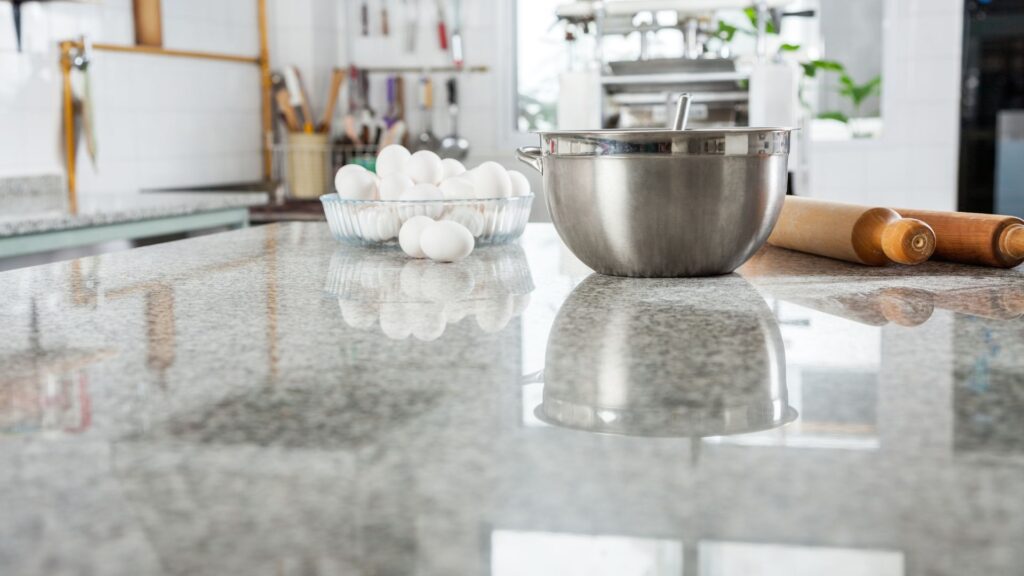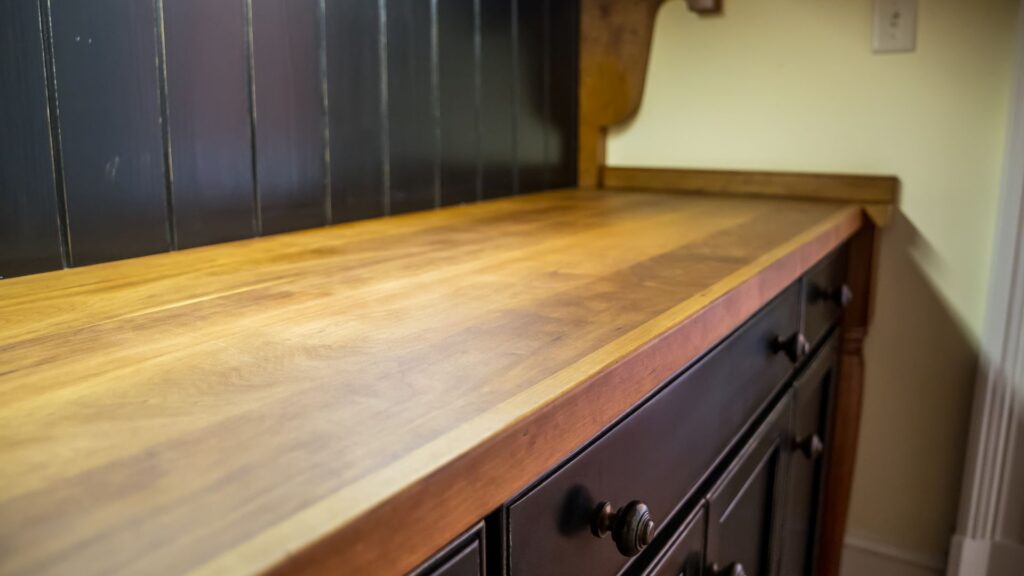
The kitchen countertop has now evolved into a statement of a piece, showcasing elegance and functionality in harmony. The choice of countertop material plays an important role in defining the overall aesthetics, durability, and maintenance of your kitchen. It’s a decision that requires careful consideration, considering various factors to ensure it aligns with your unique needs and preferences.
Every homeowner wants a perfect kitchen design, and the selection of kitchen countertop materials plays a part in it. It’s not solely about choosing a durable surface; you will want one that complements your lifestyle and resonates with the design aesthetics of your dream kitchen.
From quartz and marble to butcher block and solid surface, each countertop material brings a unique character to the kitchen space. Choosing the right material can transform the entire look and feel of your kitchen. In this article, we will explore the types of countertop materials for a trendy kitchen transformation.

COUNTERTOP MATERIALS #1 – MARBLE
Marble has long been synonymous with luxury and sophistication. The natural veining and unique patterns in marble bring unparalleled elegance to any space, making it a sought-after choice for homeowners who desire a timeless and opulent look. You can choose from three forms – Modular marble, marble tiles, and solid slabs. Choose according to your need to match your kitchen design.
One of the most significant advantages of marble is its aesthetic adaptability. Whether you prefer a sleek and modern kitchen design or a more traditional and opulent one, marble can seamlessly integrate into various styles. Its natural variations in color and veining allow it to complement a wide range of design elements and color schemes.
While revered for its beauty, marble demands careful consideration due to its porous nature. It can be easily stained if spills aren’t promptly cleaned and etched from acidic substances like vinegar. You need to reseal it regularly to protect the surface and prevent damage. It can also easily be scratched.
Marble is generally considered a premium material. The cost varies depending on the type, rarity, and source of the marble. The cost is higher than other natural stones.

COUNTERTOP MATERIALS #2 – BUTCHER BLOCK
Butcher block countertops offer a rustic and inviting charm to kitchen spaces, adding warmth and a distinct character. These countertops, constructed from wood, bring a unique aesthetic appeal and practical functionality to the modern kitchen.
This material is made from all types of wood, including oak, walnut, and maple. They can seamlessly blend into various kitchen styles, depending on your chosen finishes. The wood’s grain adds character and authenticity to the kitchen.
Compared to natural stone countertops, butcher block countertops are often more cost-effective. They offer an attractive alternative for those seeking a visually appealing, functional surface without the hefty price tag.
One of the highlights of this material is that it is the only countertop material that allows you to cut and slice directly on top of the surface. But if you decide to seal it, you can’t prepare your food directly on the surface. You will have to use a separate cutting board. If you decide not to seal it, it must be oiled twice a year.
COUNTERTOP MATERIALS #3 – GRANITE
Granite, formed from volcanic activity and composed primarily of quartz, feldspar, and mica, offers a captivating natural beauty. Its unique patterns, speckles, and color variations give each slab a distinctive appearance, adding character and sophistication to the kitchen. Granite countertops are a hallmark of durability and timeless elegance in modern kitchens.
It offers a stunning array of colors, patterns, and veining. Each slab is unique, providing a one-of-a-kind touch to any kitchen. Besides, it is highly resistant to heat, but it is still best to put your hot pans and pots on top of a trivet. Its durability makes it a suitable choice for high-traffic kitchens.
While granite is low-maintenance, it is still required to seal the stone regularly to maintain its protective barrier against liquids and stains. But you wouldn’t need to do it as often as marble does. The cost is also slightly lower than marble and quartz. Routine cleaning with mild soap and water is usually sufficient to keep its natural beauty intact.
COUNTERTOP MATERIALS #4 – SOAPSTONE
Soapstone countertops, often overlooked in favor of more well-known materials, offer a unique and understated elegance that appeals to homeowners seeking a distinctive and practical choice for their kitchen surfaces. The main source is from the Appalachian or imported from Brazil and Finland.
Soapstone, a metamorphic primarily composed of talc, showcases a subdued and gentle beauty. The stone’s natural veining and color variation add character and depth to the countertop. Soapstone is also resistant to heat and does not stain easily. Its dense composition and non-porous nature make it resistant to acids and chemicals, ideal for a busy kitchen environment.
This countertop material also requires minimal maintenance requirements. It doesn’t require sealing, but it requires periodic oiling to enhance its natural patina and maintain its appearance. Their ability to develop a natural patina over time adds to their charm, making them an elegant and durable choice for kitchen countertops.
COUNTERTOP MATERIALS #5 – SOLID SURFACE
Solid surface countertops are manufactured from a combination of acrylic and polyester materials, creating a smooth and non-porous surface. This seamless finish allows for integrated sinks and virtually invisible seams, providing a sleek and contemporary look in the kitchen.
These countertops are available in an extensive array of colors, patterns, and finishes. Whether you prefer a sleek and modern look or a more traditional appearance, solid surfaces cater to diverse aesthetic preferences.
If your solid surface countertop happens to have minor scratches, it can be easily sanded or buffed out with sandpaper, restoring its original appearance without much difficulty. It is also easy to clean and maintain, making them a hassle-free option for homeowners. Compared to natural stone surfaces, solid surface countertops are generally more cost-effective.











